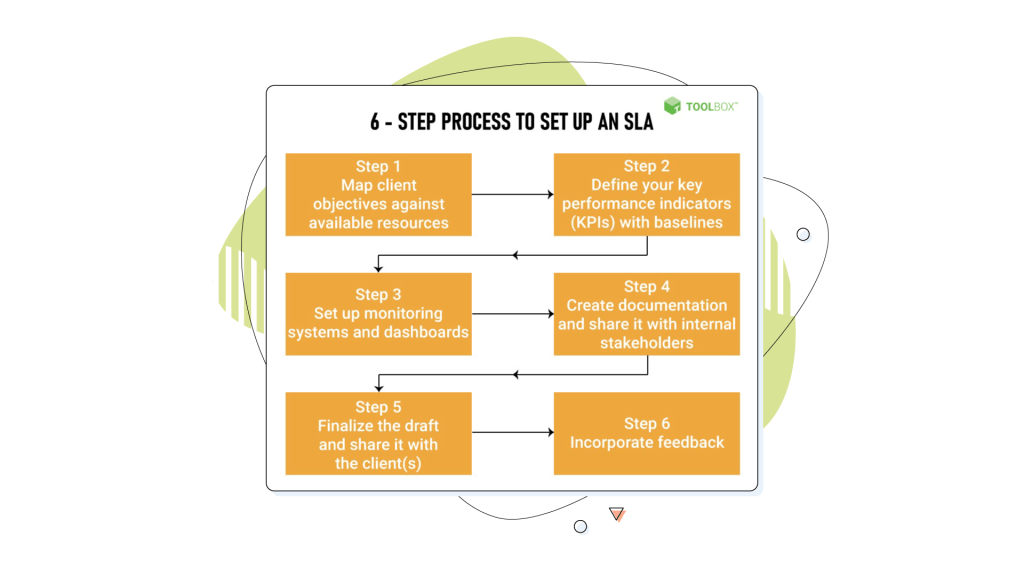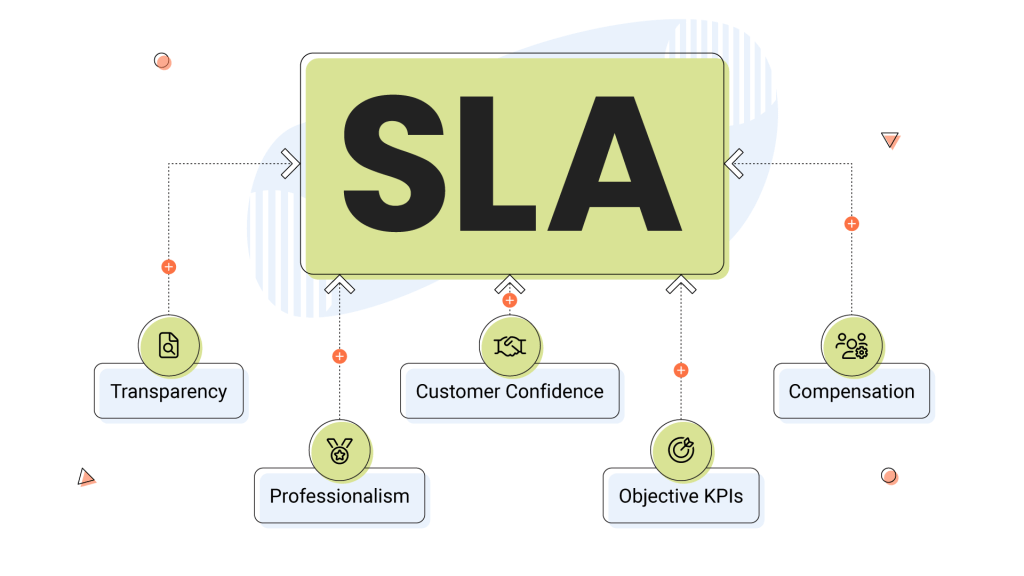Systems are great while they work. The trouble is that even the most well-thought-through body of processes will fail in due course. This inevitability of failure keeps software engineers up at night, pondering how best to build in precautions that might deflect catastrophe.
But the knowledge that your hosted solution will one day hiccup needn’t interrupt your blissful rest. This is what hosting support agreements are for. Let’s look at what they are and what you can do to ensure you’ve got the right one. Then you can go back to relaxing.

We’ll start by looking at the different kinds of hosting that are commonly employed before assessing support agreements.
Hosting Types
Websites are hosted on servers, so when a website owner makes arrangements to have their website hosted, they’re renting space on a server. There are several different types of hosting used.
- Shared
This is one server being utilized by a number of websites. There’s shared access to the server, but not to each other’s data, which remains secure. This is the most common form of hosting, mainly due to its relative inexpensiveness.
- Virtual Private Server (VPS)
Shared, but with the virtual demarcation of server resources so that there is more dedicated to each user. This tends to give enhanced performance and security.
- Cloud
In this model, each virtual server is hosted on the cloud, a vast computer network. Increasingly popular due to its power and accessibility and is used across a huge range of applications, especially those using VoIP phone systems.
- Dedicated
The server is wholly dedicated to a website. Expensive but delivers in terms of speed, capacity, and power.
- Managed
The host undertakes to carry out various tasks that are normally the website owner’s business, such as backing up, software updates, and other day-to-day activities. A managed service can be combined with any of the previous hosting models.
- WordPress

Due to their ubiquity (43% of the internet), WordPress sites often use their own model of hosted service. This incorporates some of the features that the Managed model offers.
- Reseller
Website builders can opt to take the whole hosting task off the hands of their clients, and act as a managing intermediary between the client and the host.
No matter which type of hosting is being used, there has to be a support package in place, known as the Service Level Agreement (SLA).
What is a Service Level Agreement?
When a website goes down, the earning ability of the whole business can be crippled. For this reason, it’s vital that the remedy and support package is put down in writing, in full detail.
SLAs can vary, but they’ll usually feature some or all of the following:
- Uptime figure
This gives a percentage figure that describes the proportion of the time that the system is expected to be up. 100% is of course desirable but impractical, so 99.99% is commonly cited.
- Mean Time Between Failures (MTBF)
As you might expect, this gives an indication of the average time that will elapse between system failures. As with all mean calculations, it might be statistically correct, perhaps born of crowd testing, but bear little relation to what happens in the real world.
For instance, the MTBF figure could be 18 months between failures, but if two failures occur within the first week, the client might start to become concerned. However, there might then be no further failures for another three years, which corresponds to the mean figure, but seems way off in practice.
- Mean Time to Repair or Recovery (MTTR)

This figure describes how long a client can expect to wait for a solution to a breakdown to be successfully implemented. Regrettably, as with a good deal of support matters, there’s no way to be entirely exact on this in advance.
There are two variables at work here: the severity of the breakdown and the level of resources that the support team can throw at the problem at the time it occurs. Given this, the host can only estimate the MTTR figure, based on what’s happened up to now. Again, it’s a mean figure, so clients need to be wary of what this can mean in reality.
- Other elements
These can include apportioning of responsibilities and minimum level of data rates, as well as the opening hours for the support line and the maximum waiting time expected.
There should also be included an overview of the system that’s being used, together with the provision for threat detection and encryption, as well as an overview of the content delivery network in place.
All the features of an SLA will be the subject of discussion between the host and the client. It’s vitally important that the SLA contains elements that are relevant to the client’s situation, so they can often be quite bespoke. This is an idea of how an SLA can be constructed.

Once the SLA is negotiated, it will exist among the terms and conditions of the hosting agreement. If you’re a website owner looking to nail down exactly what level of support is being offered, look carefully at how things are worded and contact the host directly if matters don’t seem quite right or fall short of delivering enough support.
Advantages of an SLA
So, an SLA is crucial because it sets out very clearly what the client is being sold in terms of support and when and how remedial measures might be put in place if the support fails to live up to the promised level. It integrates all this important information into one document. Integration = efficiency, as the best HubSpot integration attests.

Further benefits of a well-written SLA include.
- Transparency
It’s all about transparency and fairness – there should be nothing implied or unwritten in it. If it’s covered, it should be in there – plainly and simply written.
- Professionalism
This is a benefit for the host. A thorough SLA will give the right impression of the hosting business, i.e. conscientious and supportive service provider.
- Customer Confidence
When the customer has in their hand a list of what the host is undertaking to deliver, they will feel more assured about the service being offered.
- Objective KPIs
Key Performance Indicators are established, by which service can be measured, removing any subjective disagreements. Reasoned and irrefutable observations regarding performance are put in place in the same objective manner employed by performance marketing platforms.
- Compensation
Should the worst happen, and the host fails to provide either the hosting or the support service they are agreement-bound to deliver, the SLA should set out the means by which the client can seek redress via compensation and at what stage that should kick in.
What Should You Look For?
There are certain key factors that you should look for when considering an SLA. They include:
- Support Level

Is there a good knowledge base you can access?
Crucially, what hours support teamwork? If you’re a 24/7/365 kind of business will an office hours support framework really do it for you? Probably not.
This is essential to get right. If the system fails and you have no support and nothing to tell your customers except that your system’s not feeling very obliging, you’re heading for difficulty. It’s bad enough in the world of commerce, but when it comes to healthcare, say when talking about medical office phone systems, the consequences can be calamitous.
- Response Time & Repair Time
As previously indicated, these are by necessity average figures, but you can use the mean ASA (Average Speed to Answer) and MTTR figures to compare between hosts.
- Clear Severity Levels
Hosts will usually use a severity level framework in order to categorize failures and threats and to decide on what level of resource to give its solution. This framework should be clear and should make sense to the client. If not, it might indicate, at best, some unclear thinking or at worst, an attempt to obfuscate.
- Clear Compensation Levels
A good SLA will be perfectly transparent about the level of compensation a client can expect to receive should the SLA be transgressed by the host.
- Accessibility

It’s imperative that accessibility issues have been thought through with the SLA. If a client can’t access the agreement for whatever reason, then the host should be approached for an alternative. If a standard written agreement is not an option for the client, then an accessible video or audio version should be available.
- Approved Routes
Pay special attention to where particular routes of communication are required in order for a service to be delivered. If there’s a fault that needs reporting, make sure that your staff are clear about which number or email they should use.
- Uptime Percentage
What uptime is the host guaranteeing? This is key to a client’s requirements, so make sure the SLA gives a clear undertaking here.
- Termination
You don’t want to be stuck with an agreement that no longer suits. Let’s say that Aircall, the comms provider you went for early in your company’s life, no longer fits the bill. You need to know that you’ll be free to take advantage of the options provided by Aircall competitors when the time’s right.
Conclusion
Support agreements are much like most other business agreements. They are a means by which both parties can get what they want from an arrangement. By focusing on what’s important to your business, you’ll be sure to get the most from the agreement on the table.
And that will spell peace of mind for you, your team, and your customers.
Bio:
Grace Lau – Director of Growth Content, Dialpad
Grace Lau is the Director of Growth Content at Dialpad, an AI-powered cloud communication system through Dialpad outbound call center platform for better and easier team collaboration. She has over 10 years of experience in content writing and strategy. Currently, she is responsible for leading branded and editorial content strategies, partnering with SEO and Ops teams to build and nurture content. Grace Lau also published articles for domains such as UpCity and Powermat. Here is her LinkedIn.




